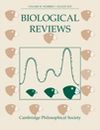A review journal is pulling a 2013 article about advances in researchers’ understanding of cholesterol after seeing the same article in another journal.
Although the retracted paper appeared first — online in Biological Reviews in February, 2013 — the journal decided to retract it after learning the authors had initially submitted it elsewhere. The first submission was eventually published (with the exception of one author) in 2014 in Frontiers in Bioscience.
The authors say they “believed that they had taken the necessary steps to withdraw their paper from Frontiers in Bioscience before they submitted to Biological Reviews in June 2012.” Here’s more from the retraction notice:


 An open-access journal with a speedy peer review process has been having some issues with a retracted article on the biology of sex addiction.
An open-access journal with a speedy peer review process has been having some issues with a retracted article on the biology of sex addiction.




